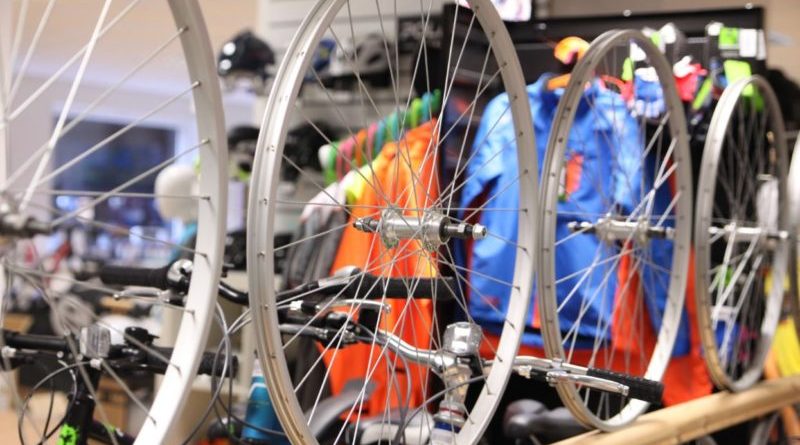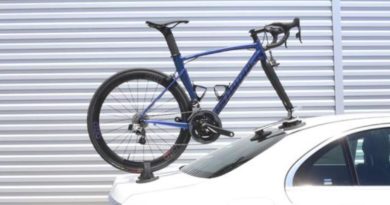Why a bike shop should choose its customer wisely
There’s a lot to be said for working smart in a business where turnover has shown to vanity and profit sanity. Paul Power, director of the Littlehampton Dutch Bike Shop, writes on the merits of attracting a client that appreciates your value…
As the bloodbath on the High street continues unabated, closures of cycle shops, both independent and chain reflect this brutal trend. No longer are we looking for the light at the end of the tunnel – the tunnel itself has collapsed.
While old faithful traditional retailing paths may appear closed and gone forever, it’s the IBD’s offer of good, honest customer service and value for money, which sets us aside from the multi-chains and faceless online discount retailers.
However, the problem as I see it, is many IBDs have as their customer base, competitive cyclists. Road and mountain bikers. By their very nature, their competitiveness isn’t just about their cycling stats, but buying from the cheapest source.
In my shop, I target customers few other bike shops appear bothered about – the older cyclists who are often returning to cycling after many years’ absence, the younger cyclist who sees their bike primarily as a form of transport and, the ladies. Over 70% of our customers are female and the majority of all our customers are over 40 with most being in the 50-70 age bracket. Consequently, we don’t usually get the over-competitive discount obsessed younger low-price hunters.
Those that do visit our shop value traditional customer service and are just happy there’s a bike shop local to them where they can visit, see, test ride and discuss their purchase knowing that aftersales service is often far more important than headline price.
A recent example – a wet and windy Saturday afternoon and a roadie rolls in the door with a puncture asking for us to pump his tyre as he’s just fitted a new inner tube and his canister failed to inflate it. Given his state of obvious exhaustion, I pump his tyre for him and ask if he’d like a replacement inner tube. “Not at your shop prices,” he says. “Can you chuck these in the bin for me,” he says, leaving his inner tube and canister on our shop floor. Not as much as thank you and he’s gone.
Yet, we have elderly ladies here in our small seaside town whose only form of transport is their beloved aging bicycle. We regularly pump their tyres and make minor adjustments to brakes and gears. They always offer to pay, and we always decline. To which, they either forcibly leave a few pound coins on our counter or return later with a home baked treat or some other goodie. I’ve lost count of the wonderful referral businesses we’ve earned from these small, inexpensive goodwill gestures. Something we have never gotten from the younger roadies and mountain bikers no matter how often we pump their tyres.
With the closure of two local bike shops, who handled most of the two cycling club’s sales and repairs, we’ve seen an increase in information-hunting, price-bashing roadie warriors in our shop. I can’t say I enjoy their visits. Many laugh at the type of bikes we sell and don’t see cycling as a form of enjoyable transport, which is a shame. A few even announce as they walk in that if we were to offer them a decent discount, we’d enjoy more sales from their fellow club members. Who needs that sort of business?
Mostly, our customers appreciate our service. I’ve worked hard at making things as easy as possible for them to do business with us – including offering a free collection and return service for service, repair and sales. While we’re mostly beaten on price, rarely ever on service. Similar to many of my customers, like them, I’m older. I ride the same bikes they ride. We have the same goals in life – to enjoy the benefits of non-competitive cycling provided by a business who understand their needs.
As I write this, one of long-standing customers has just dropped in two bottles of wine for us as a thank you for looking after him during the past year. We get this a lot. Chocolates, wine, beers, even dinner invites. When we launched our collection and delivery service over ten years ago, the two neighbouring shops rubbished what we were doing, telling me they enjoyed such a reputation that they didn’t need to offer this service.
One of the shop owners came in and asked was I so desperate for business, that I had to offer a free local collection and delivery service? He couldn’t see that not everyone can easily bring their bike to the shop. Let alone bring it during the relatively limited hours that many of us are open.
Prior to him closing, we took a lot of his workshop customers. He’d failed to appreciate or understand that his customer needs began prior to their visiting his shop. People lead busy lives. Just look at your own. There’s children to be dropped off and collected from various activities, meals to be prepared and many other time-consuming family commitments. Visiting the local bike shop isn’t too high on anyone’s priority list. Many local bike shops appear naive to the fact that if they’re to stay competitive, they must offer more by way of service and understand what they’re customers really want from their local bike shop.
When we’re quiet here, we go through our customer records and phone up our customers advising their bike service is now due and would they like me to collect their bike the following day. Our workshop diary can fill up just with a few hours on the telephone. In my view, many shop owners rely too much on new technology – email, social media and not enough on good old-fashioned methods like using the telephone. If you enjoy a good relationship with your customers, few will mind you phoning to advise their service is due or to invite them to test ride the new e-Bike you’ve just taken delivery of.
My approach won’t be for every bike shop owner. I enjoy working in our shop. I don’t want to retire; I still see running a bike shop as being a worthwhile and relatively profitable business. I don’t see the mass closures of bike shops necessarily a terrible thing. It’s less competition for those of us who remain and a stark reminder to our customers, not to take us all for granted.
Yes, earnings potentials in the cycle trade aren’t anywhere near most other business sectors – but who opens a bike shop to become rich? The trick in my view is to build a sustainable, profitable business that’s enjoyable to run. If you’re enjoying yourself, your enthusiasm and happiness rubs off on your customers. People like to buy from happy people.
If you’re not enjoying yourself, why bother? Close your door and find something else to do. The world really doesn’t need yet another miserable shop keeper.



